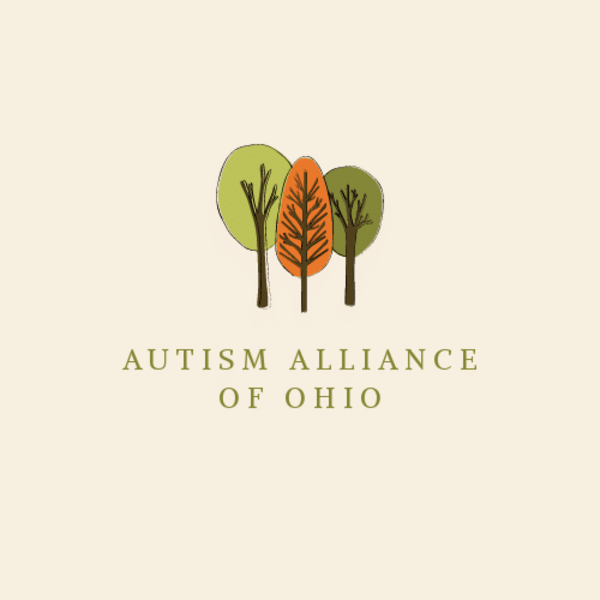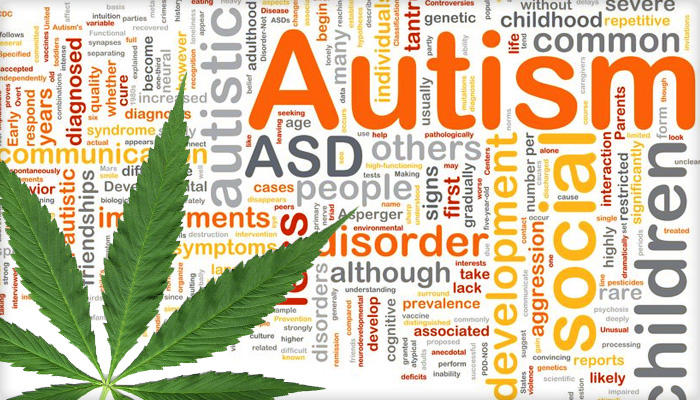Mere decades ago, an autism diagnosis was considered to be an unusual, even rare neurological diversity. Also was commonly deemed to be a condition that primarily, or largely affected children. Currently autism is the fastest-growing developmental disorder, yet somehow the most stigmatized, as well as drastically underfunded.
Today, more than 3 million Americans have been diagnosed as being on the autistic spectrum, a number that has more than tripled over the past 30 years. Now affecting 1 in 59, autism is now one of the most prevalent diagnoses among children and young adults in the United States. That is more prevalent than childhood Cancer, AIDS, Diabetes, Downs Syndrome, Muscular Dystrophy, Cystic Fibrosis and Cerebral Palsy, combined. Which is why now is the time to learn about how to improve the quality of life for those diagnosed. The cost of not doing so comes at the expense of our children.
At the end of last year, I submitted a 500-page petition to the Ohio State Medical Board in support of Autism Spectrum Disorder as a qualifying condition for medical cannabis treatment. While my submission was rife with scientific evidence, medical research and supporting data, including various letters of support from medical professionals, specialists, even expert testimony as well– despite the substantial and profound evidence I presented, the medical board voted to deny access to autism. Upon denial, Schottenstein, President of the board, stated that once a condition is officially added to the list, it cannot be removed. This factored into their decision to deny access. The legal interpretation is that new qualifying conditions may never be added to Ohio’s medical marijuana program. So, how is this justified?
The Ohio State Medical Board also doesn’t believe that it can exclude pediatric use among patients upon approval of new conditions. Some speculation from proponents states marijuana may be harmful to children’s developing brains, despite the fact that pediatric cannabis use is already permitted in Ohio in addition to a wide array of thriving pediatric patients all across our country. Ironically enough, studies have actually documented vast improvements in cognitive function in the use of cannabis as a treatment for autism spectrum disorder.

There is strong and substantial scientific evidence that supports the use of medical cannabis as a safe viable treatment for autism spectrum disorder. There are several Ohio physicians and scientists who agree and have provided expert testimony on the matter. Moreover, a bevy of states, seventeen in total, including Colorado, Delaware, Georgia, Iowa, Louisiana, Michigan, Missouri, Maine, Minnesota, Nevada, New Mexico, North Dakota, Pennsylvania, Rhode Island, Utah, Texas, Illinois and the territory of Puerto Rico have all permitted autism as a qualifying condition for their medical cannabis programs, pediatric patients included. And an additional seven other states such as California, Florida, Oklahoma, Oregon, Maryland, Massachusetts, and Washington DC all also recognize autism as a debilitating condition and allow doctors to recommend medical cannabis.
Strengthening the argument, last week, Arizona Rep Diego Espinoza, announced introducing HB2049, potentially allowing access to medical cannabis for autism spectrum disorder and opioid addiction in the state.
In addition to developmental disability, many with ASD live with conditions and core symptoms including intellectual disability, self-injurious behaviors, aggression, pain, anxiety, SPD, apraxia, dyspraxia, epilepsy/seizures, mood/sleeping disorders, gastrointestinal/feeding disorders, inflammation, oxidative stress, and immune dysfunctions. Therefore, Autism can be viewed as an extremely complex set of medical conditions that are unique to each individual diagnosed, hence why it is a spectrum condition.
Autism is an extremely extensive and intricate developmental disorder that is revealed in almost all dimensions of a child’s development. It is now common to refer to this inception condition, as a wide range of Pervasive Developmental Disorders (PDD) in which there are various manifestations and symptoms. Autism causes a host of health ailments for those diagnosed. The general population clearly tends to have better overall health than people with autism. Underlying medical and comorbid conditions need to be addressed and not attributed to one’s autism.
Of the existing qualifying conditions for medical cannabis in Ohio, many of them are comorbidly implicated within Autism. Including conditions such as PTSD, Tourettes, Seizures/Epilepsy, Chronic pain, TBI, Encephalopathy, IBS, Ulcerative Colitis, Chrons Disease, and neurological conditions like Parkinson’s and Alzheimer’s. Now, if autism is one condition entailing symptoms of 10 out of the 21 qualifying conditions that are already approved for medical marijuana in Ohio — this begs the question, why is autism spectrum disorder not already a qualifying condition?
In extension to the staggering prevalence rates, a 2017 study published in the American Journal of Public Health, actually found that the mortality risk among those with autism was more than double than that of the general population. With an average life expectancy of just under forty years old, this is very unsettling news.
Furthermore, aside from injury, studies show that the three main killers of our kids include seizures, suicide, and heart-related issues. All three of these, are amongst the many side effects of the FDA approved and most commonly prescribed medications administered to those with Autism. Common black label side effects included suicidal thoughts, seizures, respiratory issues and heart complications such as arrhythmias, heart failure, and sudden death.
Data shows that the average life expectancy is roughly 36 years of age for those diagnosed versus the general populous at 72. Those are very alarming statistics for us as parents.
There are no pharmaceutical pills that can safely or effectively treat the core symptoms of Autism. Antipsychotics, risperidone (Risperidone) & aripiprazole (Abilify) are the only two medications that are FDA approved, to treat the irritability in Autism, often ineffectively. Individuals with Autism have often been prescribed a variety of antidepressants, anxiolytics, antipsychotics, benzodiazepines, anticonvulsants as well as stimulants in off-label, untested combinations to treat symptoms.
These drugs have serious, and fatal side effects, when given in combination, the risk of harm increases significantly. Unfortunately, meaning their life expectancy decreases even further when exposed to these medications.
However, there is a great deal hope growing for families impacted. A 2015-2017 study led by Dr. Rapheal Machoulam, the professor considered the grandfather of medical marijuana research and Dr. Victor Novac observed patients with autism, 18 years old and under. Along with researchers from both Ben-Gurion University and Soroka University Medical Center. They reported that cannabis as a treatment for autism spectrum disorders appears to be a well-tolerated, safe and effective option to relieve symptoms such as seizures, tics, depression, restlessness, and rage attacks. In their study “Overall, more than 80 percent of the parents reported significant or moderate improvement in their child,” according to Lihi Bar-Lev Schleider, of the BGU-Soroka Clinical Cannabis Research Institute. Quality of life, mood, and ability to reform tasks of daily living were all closely monitored. By only 6 months, quality of life (66.8%), positive mood (63.5%) more than doubled, and self-care was improved up to 42.9%.
More recent evidence from Shaare Zedek Hospital in Jerusalem conducted by Dr. Adi Aran, lead the charge on a U.S funded pediatric-focused, continually examined, an internationally published study focusing on cannabis as a possible treatment. Under the two-month-long study involving around 60 autistic children spanning from ages 4 to age 22, with an average age of 12, were given ratios of CBD and u.cTHC, with a concentration of 20:1 or 6:1 (CBD:THC) over a span of seven calendar months. The majority of the children’s parents who participated in this study reported a decrease in problematic behavior, 80% to be exact, with 62% percent reporting that their child’s behavior improved significantly and the overall quality of life improving. Improvements were found in the areas of rage/self-injury 67.6% hyperactivity at 68.4% sleep at 71.4% and anxiety at 47.1%. This study also found that around half of the children who participated also documented improvement in their level of communication.
How can cannabis treat a complex condition like Autism? The key is in the endocannabinoid system, which represents a network of lipid signaling pathways. Regulating many, or all, that are dysregulated in Autism, positive for helping core symptoms. Improvements are a result of the medicinal effects of cannabis on the underlying medical conditions of autism that mainstream pharmaceuticals do not. Research from Stanford University shows that children with Autism have documented lower plasma levels of plasma anandamide. Anandamide is the Endocannabinoid that mimics THC in the body & plays a role in learning, memory, social functioning, easing anxiety, etc.
Now, with the knowledge the known neurological role of the endocannabinoid system and also the documented deficit of anandamide in those diagnosed. It seems undoubtedly feasible that cannabinoid-rich organic extracts from cannabis can be used as useful agents for targeting the pathology of Autism Spectrum Disorder, as well as many debilitating manifesting conditions associated with it. I conclude that families and physicians should hold the authorized right to investigate these options without fear of legal consequence or repercussion, despite one’s age or severity of Autism Spectrum diagnosis.
We must urge society to listen to the majority of national and international experts, and specialists in support of the addition of autism as a qualifying condition. A wide variety of Ohio’s qualifying conditions are symptoms associated with, as well as comorbid conditions that are commonly implicated in Autism.
Entailing many conditions that are already approved for medical marijuana, in addition to almost half of the country allowing access — why is autism spectrum disorder not already a qualifying condition? Pediatric cannabis is already permitted in Ohio for conditions like tourettes, GI issues, seizures and PTSD, all comorbidities associated with ASD. Why are our children the exception and subjected to such hesitation when our kids also suffer from these symptoms and associated conditions, because of Autism?
The fate of 44,000 diagnosed Ohio children, rests in the hands of Ohio State Medical Board officials and lawmakers as I prepare to repetition against the board again this month, and urge Ohio legislators to draw attention to this issue.
The medical board’s understanding of Ohio’s medical marijuana law, is that the legislature has not given the OSMB the authority or power to remove a condition once added, or restrict pediatric use. Until then, new conditions may never be added to Ohio’s program. However, if the board is gifted the authority to remove medically worthy conditions from being a part of this program, how is that medically justified? What about the patients at the mercy of this power struggle? What the point of having a medical cannabis program in place, if patients are still being subjected to such clear and obvious discrimination?
This could very well be considered to be medical terrorism. The medical board voting against adding this condition restricts patients in severe need from even discussing this as an option with their doctor.
Some emphasis needs to be shifted away from attempting to find the causes of autism and establish more energy toward helping people already diagnosed. Innocent lives are at stake, our kids deserve to have a better quality of life, for the time that they do have on this earth.
We must look at what we can do to improve the quality of life for people with autism in Ohio and all across our country. There is no cure for autism, but there are safer, more effective treatment options. We must urge those in the medical community, as well as the general population, to change how they observe and treat autism. This a very definite statement of how we treat autistic people and their families.
Guest post written by Tiffany Carwile, Founder of the Autism Alliance of Ohio
Inquire about how to help #cannabis4autism in Ohio by emailing [email protected]






